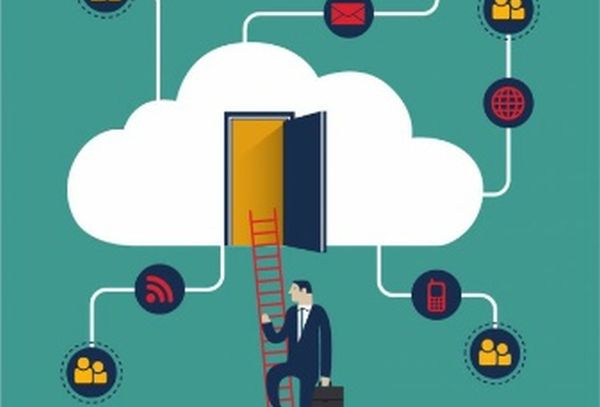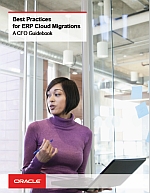Published on the 19/04/2016 | Written by Oracle

New whitepaper from Oracle sees the vendor walk the talk as it discusses best practice lessons learnt from its own cloud ERP implementation…
“We planned our journey to the cloud in phases. The phased, incremental approach mitigated risk, making it easier to manage business change. We defined and proved out the solution, built skills and expertise, provided feedback to development about the user experience, and incrementally added new functionality.” That’s according to Corey West, corporate controller and chief accounting officer, for Oracle. He’s quoted in a new whitepaper by the company called ‘Best practices for ERP cloud migrations – a CFO guidebook’. And he’s singing from the choir, after going through the process internally at Oracle. “ERP cloud can help you achieve measurable business value, but realising this value isn’t a given, and safe passage to the cloud is not guaranteed.” The vendor contends that while customer and talent-facing functions tend to get the most attention when it comes to migrating to the cloud, business leaders are remiss if they discount the benefits of moving their core systems. “In fact, digitising core operations can have a greater impact on operations efficiency and cost-reductions than anywhere else,” it says, quoting the results of a McKinsey & Company survey. Where once cloud ERP was pooh-poohed as being too risky, it is becoming more accepted by CFOs but, Oracle warns, good results are not a sure thing. “ERP cloud can help you achieve measurable business value, but realising this value isn’t a given, and safe passage to the cloud is not guaranteed,” the company says. “It’s important to understand how cloud implementations are different from traditional, on-premise projects.” Many companies think of the cloud in terms of cost savings alone, and don’t often take the time to map their unique processes to the value they can gain from a move to ERP cloud. As a result, many don’t get the business value they had hoped from their cloud deployments. That is the first of three best practice lessons that the whitepaper outlines. The top tips are peppered with nuggets on Oracle’s own learnings after implementing its cloud ERP solution as well as comments from successful client implementations. To read the full whitepaper, download it here (no registration required). Why, when, and how to invest wisely… The benefits of incorporating a data warehouse when upgrading your ERP… What to expect for the future of payables… Manual processes can lead to error-prone data analysis… What is a Finance Department and Manager Level KPI?…
…
FURTHER READING

Financial reporting and analytics solutions

Whitepaper: Data warehouse automation and ERP

eBook: The new AP department

Whitepaper: Streamline your financial year-end close

KPIs and Metrics for Finance Departments in 2020




























